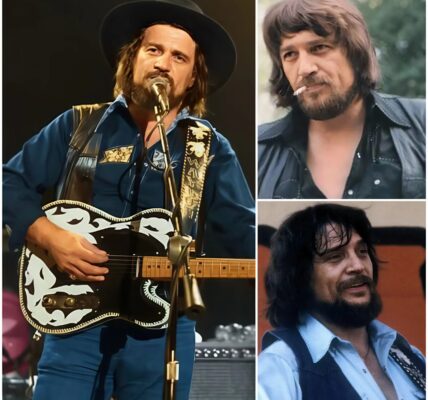Jessi Colter’s “I’m Not Lisa”: The Quiet Country Ballad That Redefined a Generation
In the mid-1970s, country music was roaring with the grit of Outlaw Country — a sound led by towering figures like Willie Nelson, Johnny Cash, and Waylon Jennings. Yet, in 1975, a softer but no less powerful voice rose above the noise. Jessi Colter, Waylon Jennings’ wife and a talented songwriter in her own right, delivered a song that would carve her name into American music history: “I’m Not Lisa.”
The ballad, with its understated piano and aching honesty, became Colter’s signature song, climbing to No. 1 on the Billboard Hot Country Singles chart and even breaking into the Top 5 on the Billboard Hot 100 — a rare crossover triumph. Nearly five decades later, its resonance has not faded.

A Song Born of Identity and Vulnerability
Released in March 1975 as the lead single from her breakthrough album I’m Jessi Colter, the song wasn’t just a commercial success. It was a personal declaration.
Colter wrote “I’m Not Lisa” herself, and it was co-produced by Ken Mansfield and her husband, Waylon Jennings. The opening line is as disarming as it is unforgettable:
“I’m not Lisa, my name is Julie…”
With those words, Colter does something radical. She gives voice to a woman overshadowed by a ghost — her partner’s lost love, Lisa. The narrator, though tender, refuses to dissolve into comparison. Instead, she asserts her own identity, quietly but firmly.
This wasn’t the swagger of Outlaw Country. It was something more haunting — a plea for recognition, delivered with restraint and dignity.
Stripped Down, Yet Monumental

Unlike the era’s typical honky-tonk anthems and barroom rhythms, “I’m Not Lisa” leans on simplicity. A trembling piano line, sparse arrangements, and Jessi’s clear, mournful vocals form the backbone of the track.
The power lies in its restraint. Jessi Colter doesn’t cry out or compete with orchestration; she lets silence, space, and honesty do the heavy lifting. The result is devastatingly moving.
Her delivery conveys not just sorrow, but a universal truth: the quiet pain of being unseen, measured against someone else’s memory.
Breaking Barriers for Women in Country
For Colter, “I’m Not Lisa” marked a career-defining moment. Though she had been writing and collaborating in Nashville for years, she was often viewed in the shadow of her husband, Waylon Jennings. This song shattered that perception.
With its success, Colter proved she wasn’t merely part of Outlaw Country royalty by association — she was an artist of immense talent, vision, and originality. In an industry where female voices were too often sidelined, she claimed space with humility and brilliance.

A Song That Ages Like Wine
Through the decades, “I’m Not Lisa” has only deepened in meaning. Jessi’s live performances, often met with reverent silence, reveal how timeless the song is. Her voice today carries the natural wear of age, but that only enriches its authenticity.
The themes of identity, grief, and longing remain universal. Nearly fifty years later, listeners continue to connect with the same ache that first captivated audiences in 1975.
Legacy of a Timeless Ballad
While Jessi Colter’s career includes collaborations and other successes, “I’m Not Lisa” stands as her masterpiece — a song that transcends genre and era.
It reminds us that true artistry doesn’t always roar. Sometimes, it whispers truths that linger for a lifetime.
As Colter once reclaimed her identity through song, she gave listeners permission to do the same: to stand in the shadow of the past, and still say, with dignity and grace — “I am not Lisa.”




